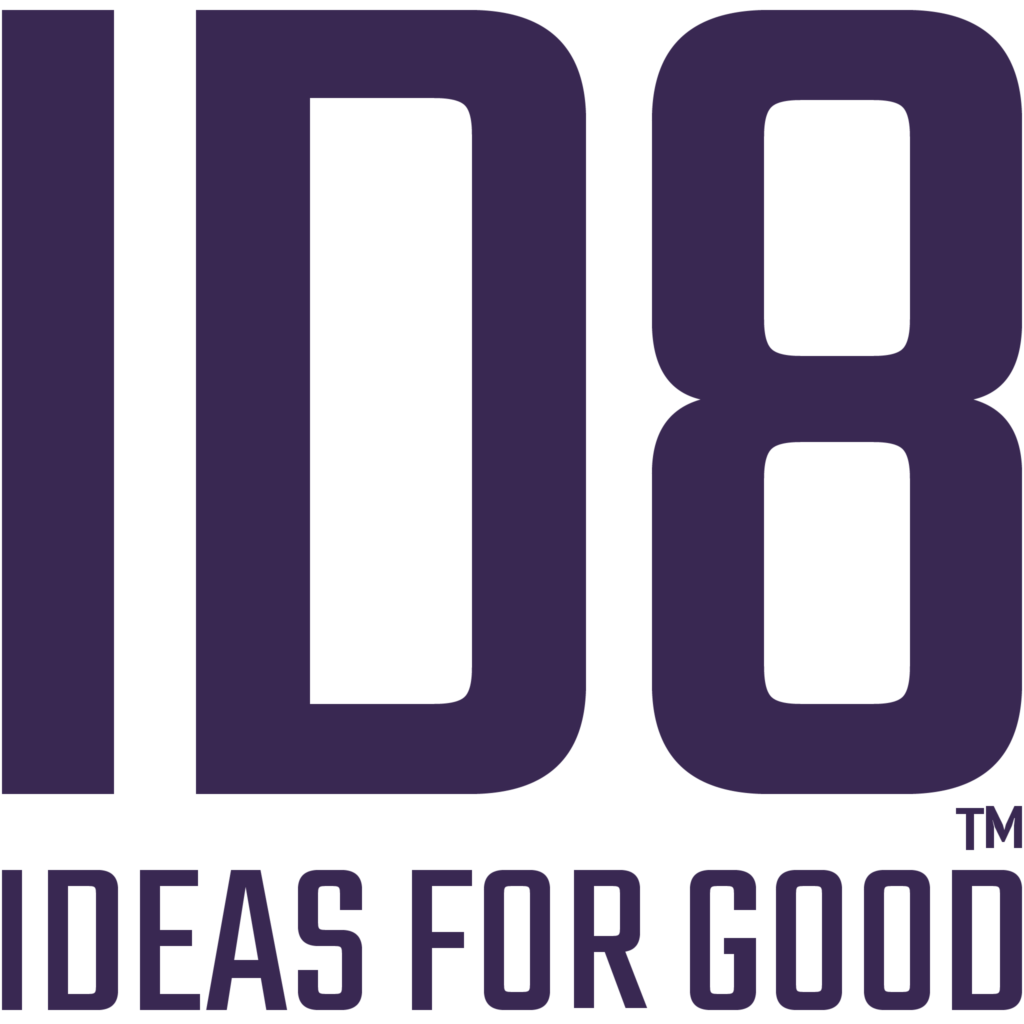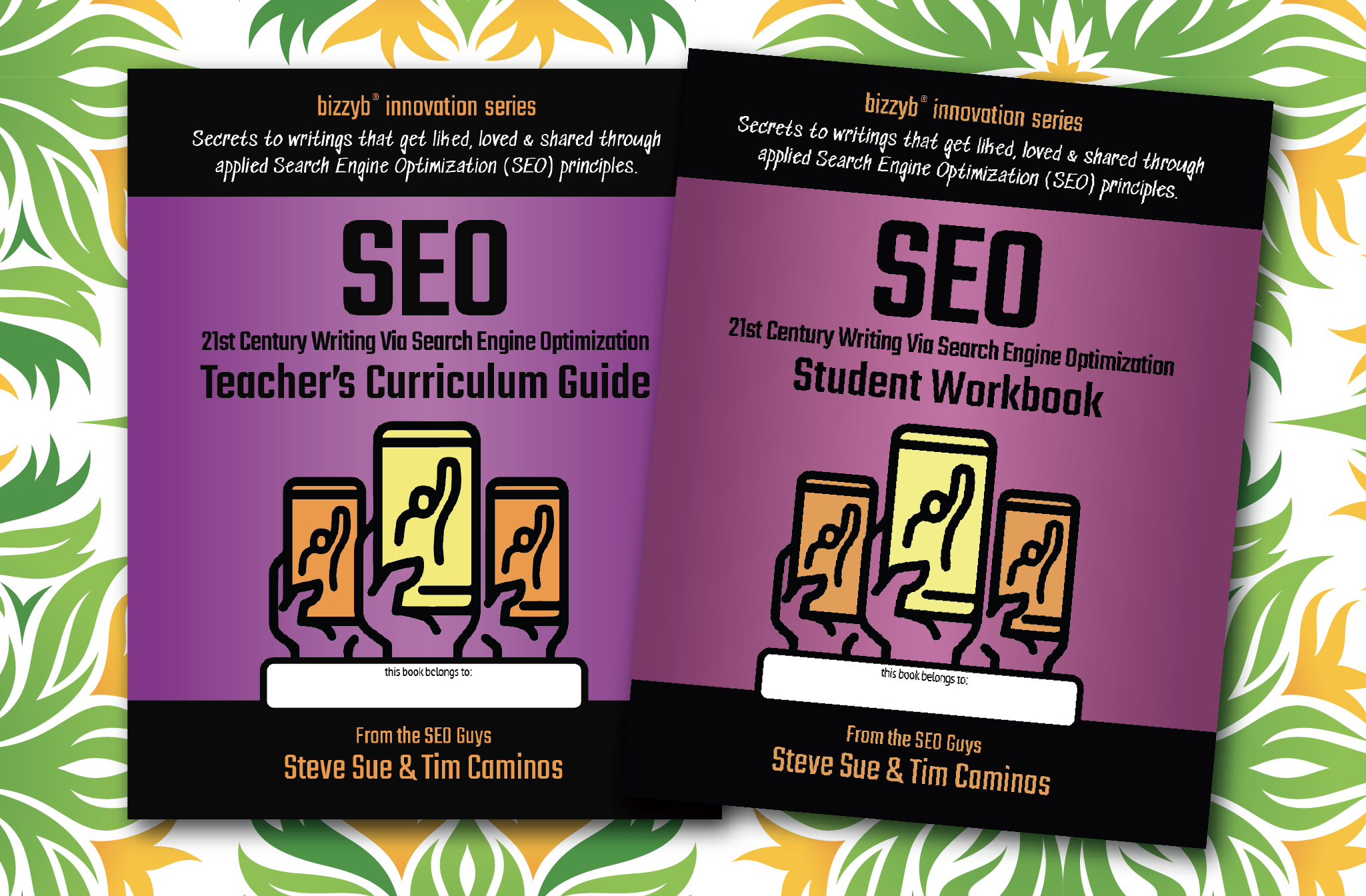We’re excited to introduce a brand new curriculum series entitled, “SEO, 21st Century Writing via Search Engine Optimization.” Huge kudos to James Campbell High School in Ewa Beach for funding this effort to create this ground-breaking curriculum system.
The Secret to Teaching Modern Language Skills
If you want students to demand language skills, present SEO (“Search Engine Optimization”) as the secret to success for social influencers, bloggers, celebs, artists, sellers and authors seeking to build strong followings.
SEO is really simple. Search engines use word-matching formulas to recommend content that answers questions. Thus, SEO ensures that content is engaging, useful and relevant to readers.
SEO makes all stories better, even if you don’t intend to publish on the Internet. That’s because SEO writing style is all about creating content that is meaningful, direct and easy-to-consume. With SEO, there’s no need to be fancy. Just be real. Say what matters. And the audience will come to you.
SEO is the new 21st Century language standard. And it’s a basic digital literacy skill. The advent of the Internet and social media have radically changed how we read and write. It’s a new age for language arts and it’s time to empower students with forward-looking language skills. This is your chance to learn how to make a bright future through SEO.
About this SEO Curriculum System
This system features 12 lessons to teach 21st Century language writing skills. This Teacher’s Guide is a companion to Student Workbooks. Each lesson section in this guide includes instructions, preparation, teaching goals, tips, a student quiz, a teacher reflection form and related Student Workbook content.
“Cherry-Pick” Three Levels of SEO
This system offers three levels of lessons to build student writing skills. While the sequenced Core Level Lesson progression is the ideal way to learn basic SEO, Intermediate and Advanced lessons can be selected and administered in any order:
- CORE LEVEL: Core lessons are designed to be useful as an adjunct to any class project. For example, a culinary class of students assigned to make cupcakes might include Core Lessons to create a name and slogan for a product, a description for a menu and/or FAQs to prepare to pitch at a showcase event. Depending on your students’ language proficiency, Core Lessons may be useful down to the late- or even mid-stage elementary students. For students under 13 years of age, use print versions of this system rather than the online software version at bizzyb.com to ensure conformance to COPPA child identity protection laws.
- INTERMEDIATE LEVEL: Intermediate lessons are designed to teach basic adult-level writing skills in common contexts. This includes job-ready, digital literacy skills. While some of the exercise applications target digital distribution, all acquired principles are applicable to any language context. Intermediate Lessons are useful down through middle school.
- ADVANCED LEVEL: Advanced lessons are designed to teach professional digital content planning, authoring and promotional techniques. These lessons are intended for high school and up.
Customizable Lessons
Lessons in this system are designed to be highly flexible. While a minimum of 50 minutes is set for each lesson, you can expand lessons to include deeper knowledge mastery and/or exercise time. You are also encouraged to take liberties in enhancing the homework feedback survey process with additional design-thinking exercises.
Use Cases
This system is designed to enhance any project-based learning experience. It can also be used as a primary writing and digital literacy curriculum system. From a departmental standpoint, it’s designed to be relevant to any language circumstance including:
- Computer Science: SEO is a key building-block of web content, navigational structures and digital promotion strategies, thus is a gateway to computer science tag-based HTML software coding (website development).
- Creative Media Production: SEO is relevant to all forms of media production including script development and writing for web, TV, radio and print.
- Culinary: SEO is relevant to creating names, slogans and descriptions for food and beverage showcases and marketplaces.
- Maker Crafts: SEO is relevant to creating names, slogans and descriptions for maker showcases and marketplaces.
- Drama: SEO is relevant to creating audience-centric scripting, dialogue and lyrics as well as show marketing content including names, slogans and descriptions.
Science, Technology, Engineering & Math: SEO is relevant to articulating all kinds of technical information. In the space of hackathons, SEO is highly relevant toward preparing for showcase and Q&A presentations. - Ecology & Sustainability: SEO is relevant to making technical information searchable and easy to understand. Grassroots causes will grow faster through employing SEO principles.
- Agriculture: SEO is relevant to creating names, slogans and descriptions for agricultural products as well as making technical information searchable and easy to understand.
- Healthcare & Human Services: SEO is relevant to making technical information searchable and easy to understand.
- Innovation & Entrepreneurship: SEO is relevant to understanding and meeting audience interests. It’s also useful toward creating names, slogans and descriptions, and preparing to pitch in showcases and marketplaces.
- School Publications: SEO is relevant to creating stories, announcements and branding for any publication.
Powered by STEP Learning Method™
This system is built on STEP Method, a design-thinking framework that combines the best of lesson-, project-, and challenge-based learning into a four-step See, Try, Evolve, Pitch model. This system empowers student voice, team collaboration (including mentorship) and positive social-emotional learning environments to deliver high levels of knowledge mastery and employer-demanded 21st Century Soft Skills.
INCLUDED: See & Try Phases
The first two phases of STEP Method are employed in this lesson model:
SEE: Each lesson begins with students being equipped with foundational knowledge in preparation for hands-on exercises. The goal of this phase is to give students an overview of the most relevant parts of the subject matter so that they are prepared to ask the right questions in critical-thinking processes.
TRY: Engage students with hands-on exercises that apply core knowledge to practice skills. Quiz testing is provided for each lesson to support your assessment of standards-based knowledge mastery and skills proficiency. At the end of each lesson, homework is included as design-thinking feedback surveys and reflections.
OPTION TO ADD PBL: Evolve & Pitch Phases
You are encouraged to add your own Project-Based Learning experiences:
EVOLVE: Consider adding a semester project. For example, in a culinary class, a project to invent, produce and sell a food product. Through the semester, use lessons to create names, slogans, descriptions, videos, etc. Also consider dividing students into project teams. Collaboration experiences foster Social-Emotional Learning (“SEL”), Soft Skills development and mentorship opportunities.
PITCH: Also consider creating a challenge event like a hackathon, business competition, market day or science fair. Such events can range from a simple classroom vote to a formal competition with awards, prizes and judges. Challenge events foster higher student engagement, additional Soft Skills development, interaction with the community and the development of workforce pathways.
Your Role as a Creative Coach
Teachers using STEP Learning Method™ should think of themselves as “Creative Coaches” rather than as lecturers. With STEP Method lessons delivering core knowledge, your function as a teacher is to encourage and empower student voice in the making of big ideas.
Curriculum Availability & Support
SUPPORT available at bizgenics.org/contact and bizzyb.com/contact. Get materials at:
PDF Quiz Handouts: Printable quiz handouts for all lessons are available as free PDF downloads at: BizzyB.com/partners/seo-literacy
Print Workbooks: Student Workbook and Teacher’s Guide are available at Amazon.com or at discount through Bizgenics Foundation, just Contact Us »
Online Lessons, Projects & Contests at BizzyB.com: This system is available in electronic form at BizzyB.com, the student innovation and entrepreneurship learning platform. If you’re interested in implementing the full STEP Learning Method™, consider using BizzyB to offer a complete SEE, TRY, EVOLVE, PITCH experience. Key features include:
- Free Student, Teacher & Mentor Accounts: all user accounts are free. Accounts include personal digital portfolios including micro-badges.
- Free Groups Management & Soft Skills Assessments: classes and clubs can be created by any member. Group managers have the option to turn on SEL and Soft Skills assessments (pre- and Post-surveys).
- Free Lessons: all lessons and quizzes are free at BizzyB.
- Free to Create a Project Template: any member can create a project template at BizzyB. Template features include customization of instructions, tips, examples, videos, links and uploads. Lessons can be attached to project templates.
- Free Abridged Team-Based Project Journal: users get a free abridged version of project templates. All template features are accessible to free users including multi-user teams, mentors, comment channels, instant messaging, leadership assignments, idea credits, feedback surveys, pitch deck editor, business plan editor, and more. Fab Five Journaling topics that are deeper than top level free topics, are available in Premium Membership subscription.
- UPGRADE FOR UNABRIDGED PROJECT JOURNALING: For power project users, upgrade to Premium Membership, a pay subscription.
- Free Contests: any member can create a contest for projects to be entered into. All contest features are free including rules, judging criteria, award & prize info, sponsors, judges, leaderboard and more. Contest winners gain badges in their respective personal digital portfolios.

